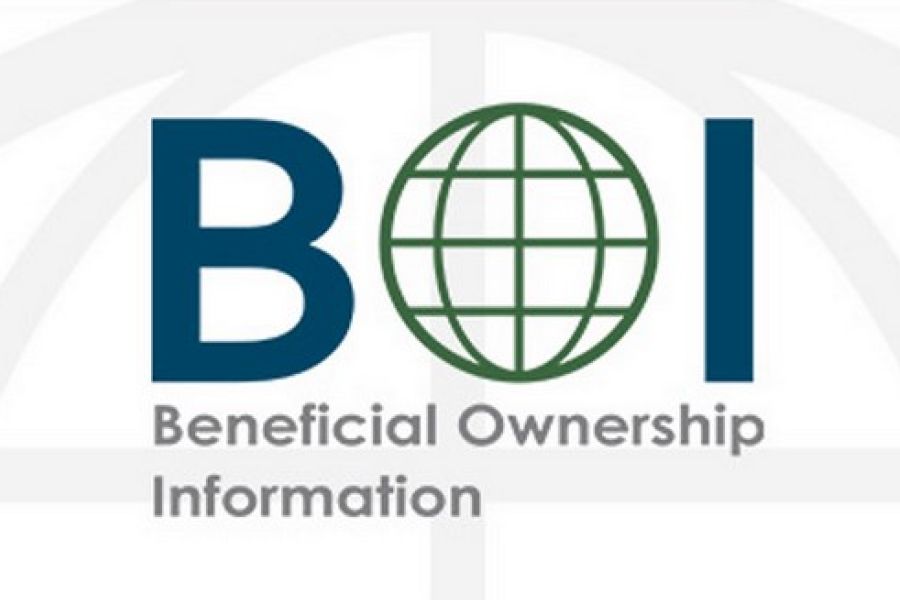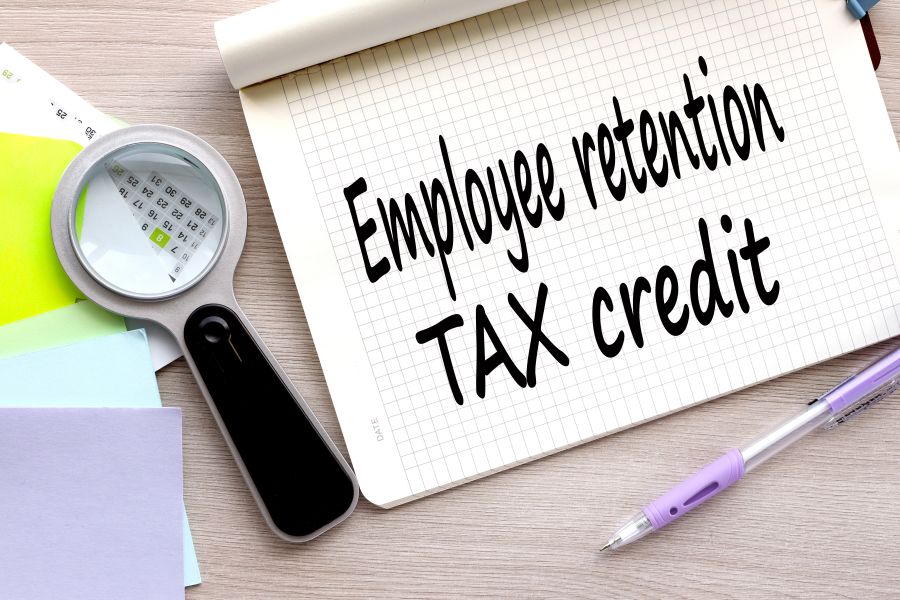In 2021, Congress passed the Corporate Transparency Act (CTA). The CTA requires many entities doing business in the US to report information about the individuals who ultimately own or control them (the entity's "beneficial owners"). The CTA's expanded anti-money laundering laws require that small businesses report this beneficial owner information to the Financial Crimes Enforcement Network (FinCEN) in an effort to create a national database for use by national security and law enforcement agencies to prevent the use of shell companies for criminal activity. The new "Beneficial Ownership Interest" (BOI) reporting requirements, effective January 1, 2024, apply to domestic and foreign companies created or registered to do business in the US by filing a document with the Secretary of State (or similar office). While certain types...

As Reported via IR-2024-263 on 10/10/2024 The Internal Revenue Service announced on 10/10/2024 continued progress on Employee Retention Tax Credit claims, with processing underway on about 400,000 claims, representing about $10 billion of eligible claims. Work on the claims for small businesses and others is ongoing as the agency continues to navigate a large volume of claims from the complex pandemic-era credit. A significant number of the Employee Retention Tax Credit (ERTC) claims came in during a period of aggressive marketing by promoters, leading to a large percentage of improper, ineligible claims. “The IRS understands the vital importance of Employee Retention Tax Credits payments for struggling small businesses, and we are continuing to make important progress on one of the most complex tax administration provisions we’ve...
As reported via IR-2024-240 on 9/18/2024 The Department of Treasury and Internal Revenue Service issued proposed regulations to provide guidance for the Alternative Fuel Vehicle Refueling Property Credit (the tax credit related to the installation of EV chargers). The Inflation Reduction Act amended the credit for qualified alternative fuel vehicle refueling property. The changes apply to qualified alternative fuel vehicle refueling property placed in service after 12/31/2022, and before 01/01/2033. Business vs Non-Business Property Property Subject to Depreciation The credit amount for property not subject to depreciation is 30% of the cost of the qualified property placed in service during the tax year. The credit is limited to $1,000 per item of non-depreciable property Property Not Subject to Depreciation The credit amount for depreciable property is 6% of the cost of the...
Electric vehicles (EVs) have become increasingly popular. According to Kelly Blue Book estimates, the EV share of the vehicle market in the U.S. was 7.6% in 2023, up from 5.9% in 2022. To incentivize the purchase of EVs, there’s a federal tax credit of up to $7,500 for eligible vehicles. The tax break for EVs and fuel cell vehicles is called the Clean Vehicle Tax Credit. The current version of the credit was created under the Inflation Reduction Act. Here are answers to some frequently asked questions. Which vehicles qualify for the credit? To qualify for the full $7,500, there are several requirements. For example: The vehicle must be a new plug-in electric or fuel cell vehicle. It must have a battery capacity of at least seven kilowatt...
As appearing in IR-2024-198 Businesses urged to proactively resolve erroneous claims to avoid penalties, interest, audits As the Internal Revenue Service intensifies work on the Employee Retention Tax Credit (ERTC), the agency today shared five new warning signs being seen on incorrect claims by businesses. The new list comes from common issues the IRS compliance teams have seen while analyzing and processing ERTC claims. The new items are in addition to seven problem areas the IRS previously highlighted. The IRS urged businesses with pending claims to carefully review their filings to confirm their eligibility and ensure credits claimed don’t include any of these 12 warning signs or other mistakes. Businesses with these indicators should talk to a trusted tax professional and consider using special ERTC Withdrawal Program that remains available. Business considering...
Meteorologists warn that the 2024 hurricane season could break records, possibly surpassing 2020, the worst hurricane season on record. Even if hurricanes aren’t a threat where your business operates, other natural disasters — such as floods, wildfires and tornadoes — could impact your normal operations. Interruptions from these disasters and other crises can cause significant financial losses. Business owners may purchase business interruption insurance to safeguard against potential losses. These policies can allow you to recoup lost profits, repair damaged assets and cover other incremental expenses. When a covered event occurs, it’s important to hire a business valuation professional to explain your coverage and estimate your losses. Understanding your coverage Business interruption insurance is arguably one of the most complicated insurance products on the market today. And most...
Most businesses have websites today. Despite their widespread use, the IRS hasn’t issued formal guidance on when website costs can be deducted. But there are established rules that generally apply to the deductibility of business expenses and provide business taxpayers launching a website with some guidance about proper treatment. In addition, businesses can turn to IRS guidance on software costs. Here are some answers to questions you may have. What are the tax differences between hardware and software? Let’s start with the hardware you may need to operate a website. The costs fall under the standard rules for depreciable equipment. Specifically, for 2024, once these assets are operating, you can deduct 60% of the cost in the first year they’re placed in service. This favorable treatment is allowed...
Regardless of their size, businesses rely heavily on technology. Although your network and computer-related tools are essential to function, they’re also a potential liability because they can offer cybercriminals access to your company. To protect against this complex and ever-evolving threat, businesses must deploy a comprehensive cybersecurity program. Your arsenal You should already have a cybersecurity software package to protect technology assets. But to provide the best protection from hackers and other fraud perpetrators, arm your business with these seven additional weapons: 1. Strong passwords. Given a choice, most computer users select passwords that are easy to remember and input. But cybercriminals use password-cracking software that can guess simple passwords in almost no time. So require all employees to choose complex passwords that combine upper- and lowercase letters, numbers...
(As appearing in IR 2024-186) IRS reminds car dealers and sellers to be aware of phishing scams In light of the CDK ransomware attack, the Internal Revenue Service would like to remind car dealers and sellers to be aware of evolving phishing and smishing scams that could impact day-to-day operations of the business. In light of the recent ransomware attack against CDK, the IRS is warning individuals and businesses to remain vigilant against these attacks. Fraudsters and identity thieves attempt to trick the recipient into clicking a suspicious link, filling out personal and financial information or downloading a malware file onto their computer. Scammers are relentless in their attempts to obtain sensitive financial and personal information, and impersonating the IRS remains a favorite tactic. The IRS urges car dealerships...
Whether your company acquires businesses that own real estate or you invest in real estate directly, fraud poses an ever-present threat. Buying and selling real estate is complicated, and it’s relatively easy for crooks to manipulate the process. To help mitigate real estate fraud threats, thorough due diligence is essential. Staying current on common schemes and red flags also may enable you to identify risky transactions before you put down any money. 5 schemes First, be aware of these five common real estate fraud schemes: Fake documents. Every real estate transaction requires extensive documentation. To make an acquisition more enticing, sellers could fake rent rolls, financial statements or other documents that indicate an asset’s profitability. Additionally, sellers might doctor environmental impact reports to, for example, hide the...











